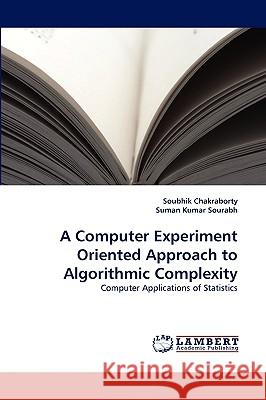A Computer Experiment Oriented Approach to Algorithmic Complexity » książka
A Computer Experiment Oriented Approach to Algorithmic Complexity
ISBN-13: 9783838377438 / Angielski / Miękka / 2010 / 192 str.
This book forms the much needed strong interface between algorithmic complexity and computer experiments using a careful blending of traditional ideas in algorithms with untraditional research in computer experiments (esp. fitting stochastic models to non-random data). While establishing the aforesaid interface, the important role of statistical bounds and their empirical estimates obtained over a finite range (called empirical O) is discovered as a bonus. While these bounds are very valuable for the average case, our research suggests in addition that there is no need to be over-conservative in the worst case just as the statistical bounds safeguard against making tall optimistic claims for the best cases. In short the statistical bounds have a sense of "calculated guarantee" that is neither too risky nor too conservative. In parallel computing, with every change of the processor, it can be argued that it is the weight of the operation that changes. Hence, if the bound is itself based on weights, it should be deemed as the ideal one.











